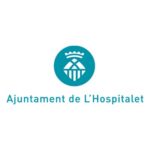How can technology help to improve the autonomy and quality of life of elderly people in a situation of dependence?
Under the L’H 6.0 strategy, L’Hospitalet de Llobregat City Council is carrying out multiple technological projects aimed at the digital and technological transformation of the city, placing the most vulnerable citizens at the centre. To this end, it is deploying a digitalisation plan for the 6 districts that will fully connect the city through actions aimed at reducing the digital divide among citizens, with a digitalised and accessible administration, with a productive ecosystem that takes advantage of the opportunities of digitalisation, promoting talent, training, and job opportunities.
One of the priority groups for the L’H 6.0 strategy is the elderly.
Technological progress and new technologies have the potential to develop new solutions and products aimed at improving the quality of life of the elderly by optimising their health and well-being, especially in the case of people in a situation of dependency.
In this sense, the City Council intends to explore the inclusion of innovative services in the portfolio of social services, aimed at improving the quality of life of people over 75 years of age in a situation of dependency and living alone to help them live autonomously as long as possible in their own homes.
Open call:
In the case of Hospitalet del Llobregat, with a population of 264,657 inhabitants, 20% are over 65 (52,931 inhabitants) and of these, 26% have some degree of recognised dependency, a percentage much higher than the average for Catalonia. Moreover, in the case of Hospitalet del Llobregat, 33% of people with some degree of dependency live alone and of these, 75% are women. ).
To all this, it should be added that population growth projections for the Barcelona metropolitan area indicate that the trend will continue to rise and that by 2035 25% of the population will be over 65 years of age. ).
In a context of accelerated social, economic, and technological change, the needs of dependent people have changed. The municipality’s dependency care teams regularly detect situations of elderly people who live alone, and present different problems related to mobility, health, safety, relational issues and personal autonomy. Faced with this new situation, the public administration is looking for new ways of responding, finding new solutions and services to improve their well-being, quality of life and independence. Moreover, these solutions must be based on the principles of sustainability and user privacy.
The solutions must respond in an easy, intuitive way, with simple language, indications and steps that are easy to understand and adapted to their difficulties of movement and mental agility. In this way, they can have a positive impact on their daily life and improve their quality of life.
Solutions aimed at improving the independence and autonomy of people such as:
– Safe and automatic opening of the access door to the home.
– Reduction of risks derived from lapses, forgetfulness, and disorientation (loss of keys, forgetting to turn on the cooker or other electrical appliances, etc.).
– Safe daytime and night-time movement around the home.
Empowerment and autonomy in regular activities (remote shopping with personal interaction with the shop, medical consultations, etc.)
2. Technological solutions for the improvement of physical space
Solutions that provide some improvement in the physical space of the home, such as automation and home automation of some household resources such as taps, toilets, blinds, or kitchen furniture.
3. Technological solutions for social/relational improvement
Solutions that facilitate social life, communication, and interrelation with other people in their environment, that help to avoid isolation and foster relationships with family, friends and social networks, that can provide cognitive stimulation to prevent progressive loss of memory and mental abilities, that help them to feel accompanied, even if they live alone.
4. Technological solutions for health improvement and surveillance
Solutions that help to improve and control health. Examples could be medication management or automatic monitoring of health risks (low blood sugar, dehydration, high blood pressure, arrhythmias, epilepsies, and other major health risks).



Key Dates
FAQs
You can send an email to digitalinclusion@mobileworldcapital.com. We will get back to you as soon as possible.
